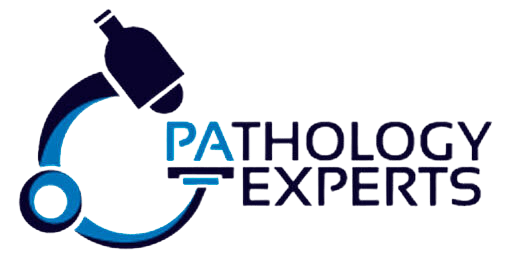Our Experts

Maurice Cary
DVM, PhD, DACVP, FIATP
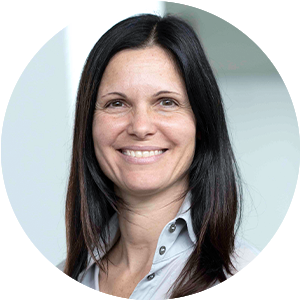
Sabina Soldati
DVM, PhD, DECVP
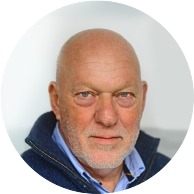
Eric van Esch

Brad Bolon
DVM, MS, PhD, DACVP, DABT, FATS, FIATP
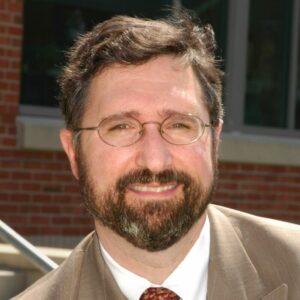
Thomas Rosol
DVM, PhD, MBA, DACVP
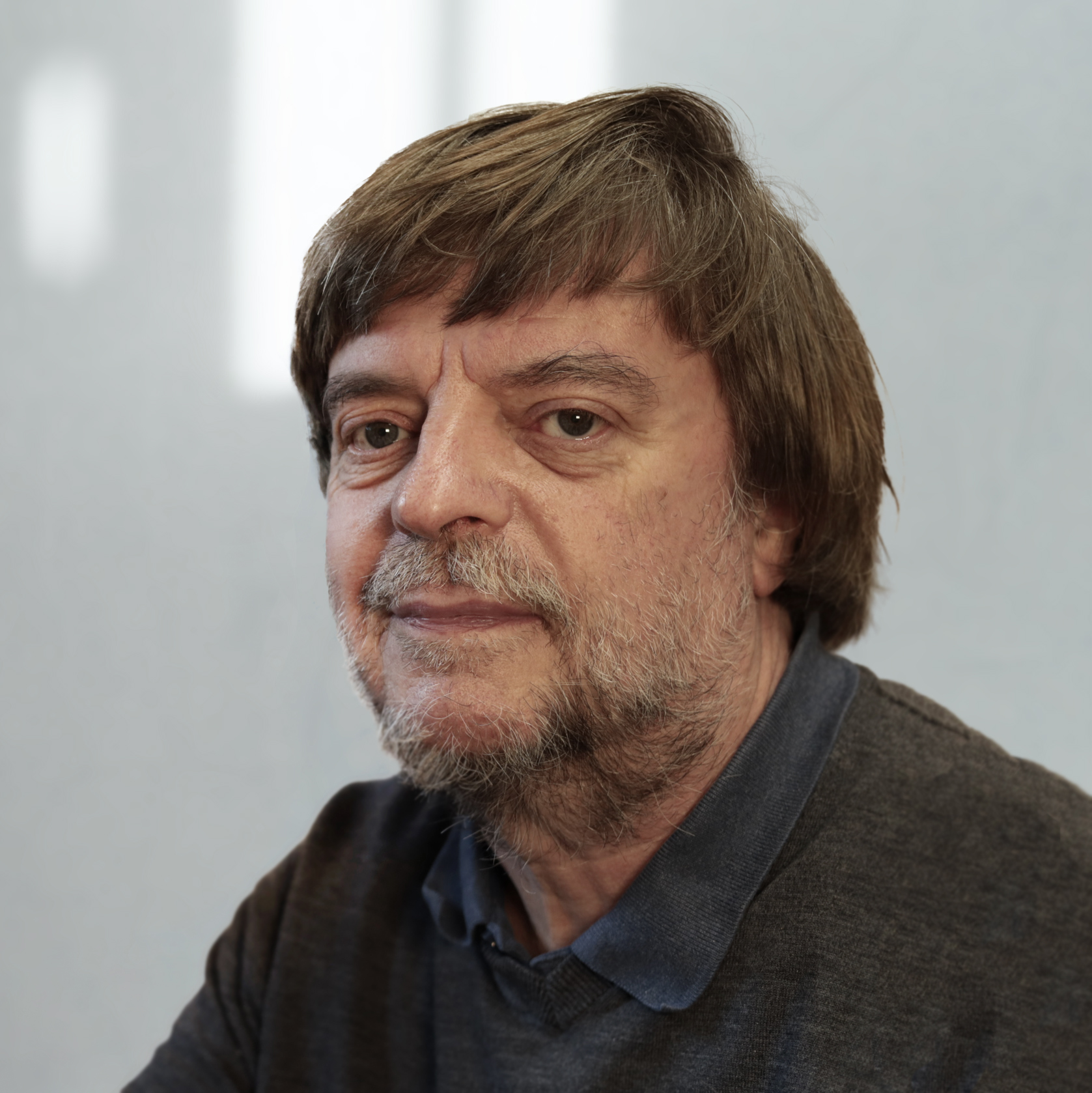
Roger Alison
BVSc, MRCVS, DECVP

Anna Oevermann
DVM, DECVP

Chiara Brachelente

Rachel Cianciolo
DVM, PhD, DACVP

Myriam Defontis
DVM, DECVCP

Gerhard Hager
PhD
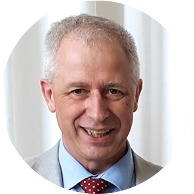
Andy Makin
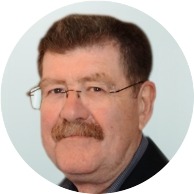
Alberto Lodola
Dr. Cary is a recognized expert in histopathology with a +30 year track record in preclinical development and safety assessment of pharmaceuticals/ biopharmaceuticals and medical devices, as well as +15 years of business and consulting experience. Dr. Cary has handled implementation of nonclinical programs, including problem solving/development issues, Expert Report preparation, regulatory documentation preparation for numerous projects (100s of studies) performed in Europe, USA and Asia involving biologics or NCEs. Somewhat unusual for a pathologist, he is also experienced in outsourcing as he was Head of Outsourcing (toxicology) in Europe for Novartis (Switzerland). This has led to his special interest in optimizing the performance and reporting of preclinical safety/risk assessment studies.
Dr. Soldati is an expert veterinary pathologist with a broad experience in experimental, toxicologic and diagnostic pathology.
She obtained her D.V.M. degree at the University of Milan, Italy in 1999. After working in a combined residency program of the University of Milan, Italy and Bern, Switzerland, she obtained the ECVP Diploma and the PhD in pathology of genetically engineered mice as a model of human cancer, both in 2005.
She worked in academia (University of Milan, Mouse and Animal Pathology Laboratory (MAPLab) and University of Bern), pharmaceutical company and private diagnostic lab, gaining experience in all fields of pathology, from efficacy and toxicological studies in laboratory animals and evaluation of novel gene therapies in genetically engineered animals to spontaneous diseases in laboratory and domestic animals. She has also a broad experience in AI development for Digital Pathology.
Thanks to her entrepreneurial background and experience as a member of international companies’ bodies, Dr. Soldati has an interpretive and problem solving approach to issues arising in preclinical development and experimental medicine.
She is author and co-author of peer-reviewed publications, previously served on the ECVP Council as Secretary and currently serves on the Swiss Cantonal Commission on Animal Experiments.
Eric van Esch is a Board Certified Toxicologic Pathologist with over 35 years of experience in the field of toxicologic pathology in the pharmaceutical industry and in various CRO settings. He has experience in a broad range of toxicity studies, varying from short term to carcinogenicity studies, and from studies in rodents to studies in dogs, minipigs and non-human primates, using different routes of administration. In addition to toxicologic pathology, he also gained experience in the field of clinical pathology for several years.
Through his employment at Organon NV for more than 25 years, well-known for the development of products in the field of female and male reproduction, he gained broad expertise in those areas. This specific knowledge is recognized internationally through his participation in INHAND working groups as well as in several pathology working groups. He always strives to put the data into perspective by considering possible mechanistic implications and the overall human risk relevance. By this means he is able to take the data one step further.
With his sense for subtle, sometimes unexpected morphologic changes he, as independent peer reviewing pathologist, often supports study pathologists in refining, and improving the accuracy and quality of the final pathology data and overall interpretation. He can perform his activities (primary slide reading, peer review) under full GLP as he is OECD GLP accredited since 2012.
Dr. Bolon is an experienced pathologist (toxicologic neuropathology) with special interest in genetically engineered and developing animals. He has written or co-authored over 200 articles and book chapters, has edited or co-edited 4 books, and is a frequent invited speaker at national and international meetings on mouse pathology.
Dr. Bolon has B.S., D.V.M. and M.S. degrees from the University of Missouri, “enjoyed” an anatomic pathology residency (1986-1989) at the University of Florida, and obtained a Ph.D. (1993) from Duke University while completing postdoctoral training at the Chemical Industry Institute of Toxicology. He was employed by Pathology Associates International as associate director of the Molecular and Immunopathology Division (1993-1994) and later as staff pathologist at the National Center for Toxicological Research (1994-1996) before moving to Wyeth-Ayerst Research (1996-1997) as a senior scientist.
Dr. Bolon served as an experimental pathologist at Amgen (1997 to 2004) responsible for evaluating engineered rodents and the efficacy of novel biopharmaceuticals. He subsequently founded an experimental pathology consulting practice (GEMpath, for “Genetically Engineered Mouse Pathology”), working there from 2004 to 2011. Dr. Bolon worked for a time as an associate professor at The Ohio State University College of Veterinary Medicine (2011-2015), after which he returned to re-launch GEMpath (2015 to date). Dr. Bolon is a Diplomate of both the American College of Veterinary Pathologists (ACVP, anatomic pathology; 1991) and American Board of Toxicology (ABT; 1996, re-certified 2001, 2006, 2011, 2016) and is a Fellow of both the Academy of Toxicological Sciences (ATS; 2011) and the International Academy of Toxicologic Pathology (IATP; 2007).
Thomas Rosol, DVM, PhD, MBA, DACVP is a professor of veterinary and toxicologic pathology and former Chair of Biomedical Sciences at the Ohio University Heritage College of Osteopathic Medicine and diplomate of the American College of Veterinary Pathologists. He has served as dean of the College of Veterinary Medicine and senior associate and interim vice president for research at Ohio State University, on advisory boards to the National Institutes of Health, United States Department of Agriculture, USEPA, American Veterinary Medical Association, and Morris Animal Foundation, and on a 2-year congressionally mandated National Academy of Sciences Committee for recommendations to streamline Research Regulations. Rosol serves as a consultant for industry in preclinical safety and toxicology in the areas of endocrine, bone, and reproductive pathology and animal models of cancer, and serves on the 8-person international expert panel for the Flavor and Extract Manufacturer’s Association FEMA-GRAS (generally recognized as safe) reviews. The Rosol laboratory investigates the pathogenesis of animal models of human cancer, mechanisms and treatment of bone metastasis, and endocrine-responsive cancers, and has been funded by NIH for over 30 years. Recent work focuses on prostate, breast, head and neck cancer, thyroid cancer, lymphoma, and automated pathology using image analysis and artificial intelligence algorithms. Rosol has over 340 publications (H-index of 61; >13k citations) and served as the mentor for 27 PhD students and 25 postdoctoral trainees. The Rosol laboratory specializes in molecular investigations and mouse and dog in vivo studies using state-of-the-art imaging using bioluminescence, microCT, high resolution ultrasound, MRI and PET. Rosol is an elected fellow of the American Association for the Advancement of Science and the International Academy of Toxicologic Pathologists and was recognized by Ohio State University as a Distinguished Scholar, which is one of the universities’ highest honors. Rosol was awarded the Annual Distinguished Mentor Award from the Society of Toxicologic Pathologists and the ACVP Distinguished Member Award.
Dr. Alison is a EBVS® European Specialist in Veterinary Pathology who has been working as a GLP certified independent consultant toxicological pathologist since 1992. He reads anything from dose-range finding studies to carcinogenicity studies, and conducts independent peer reviews of short term or carcinogenicity studies. Peer reviews can be on glass slides or digital whole slide images, either in his own offices or on client premises in Europe or the USA.
Before setting up his consultancy, he worked in Contract Laboratories (Life Science Research and Huntingdon Research, both now LabCorp), at the US National Toxicology Program as an Expert Pathologist (Chairing or participating in 36 Pathology Working Groups), and at Sandoz Pharmaceutical (now Novartis) in Switzerland. Particular interests include cardiovascular and ovarian neoplasia, with multiple publications in both areas, and carcinogenicity peer review.
Prof. Dr. Anna Oevermann is a board-certified veterinary pathologist (Dipl. ECVP) and Professor of Veterinary Neuropathology at the Division of Neurological Sciences (DNS, https://www.neurologicalsciences.ch/en/) at the University of Bern, Switzerland, which she joined in 2006. She is a trained veterinarian (University of Giessen, Germany) with a doctorate in veterinary medicine (University of Zürich, Switzerland) and extensive specialization in neuropathology, with a particular focus on infectious and inflammatory diseases of the central nervous system in animals.
Her professional interests lie at the intersection of diagnostics, research, and education. She is committed to advancing diagnostic veterinary neuropathology and contributes actively to the European College of Veterinary Pathologists (ECVP). As head of her research group, she leads several projects investigating the pathogenesis of neurolisteriosis and the development of Listeria monocytogenes-based vector vaccines. Her research is supported by the Swiss National Science Foundation (SNSF) and various private foundations.
Prof. Oevermann is engaged in both undergraduate and postgraduate teaching, sharing her passion for veterinary neuropathology with students, residents, and colleagues worldwide. She frequently collaborates with clinicians, diagnosticians, and researchers across Europe and beyond, serving as an expert in both academic and applied pathology settings.
In addition to her academic and diagnostic roles, she contributes to continuing education and specialist training in veterinary pathology and neuropathology, regularly publishing in peer-reviewed journals and speaking at international conferences.
Outside of work, Anna enjoys spending time in nature—especially gardening or hiking in the mountains with her family—and is an avid music enthusiast.
Prof. Brachelente is a Diplomate of the College of Veterinary Pathologists (ECVP) and is an internationally recognized expert in veterinary dermatopathology. She obtained her degree and PhD at the University of Perugia with a research focus on the immune alterations of some dermatological diseases of dogs and completed his residency and advanced training in veterinary pathology and dermatopathology at the University of Bern in Switzerland. With over 20 years of experience, she combines diagnostic expertise in dermatology with an academic and research profile. Her diagnostic activity covers the histological and cytological evaluation of skin biopsies, necropsies, and complex dermatological conditions of companion animals, providing specialist consultation to dermatologists and researchers. Her research focus is on skin diseases, tumor immunology and comparative oncology, with a particular emphasis on canine melanoma as a model of human disease. As a researcher she has participated in and led several nationally and internationally funded projects and has been the author or co-author of numerous peer reviewed publications in veterinary pathology and dermatology journals. Professor Brachelente is active in the education of undergraduate and postgraduate students and in the training of Residents of the European College of Veterinary Pathologists (ECVP) and Veterinary Dermatologists (ECVD). She currently serves as Vice President of the International Society of Veterinary Dermatopathology (ISVD) after serving as its secretary for six years; at the same time she is Chair of the dermatopathology section of the European College of Veterinary Dermatologists (ECVD) and member of scientific committees of Italian and European veterinary pathology organizations. As a dermatology consultant, Professor Brachelente brings together a strong expertise in dermatological diagnostics, a strong academic foundation and a wide international network, providing interpretative and problem-solving support for difficult dermatological cases.
Dr. Cianciolo has expertise in nephropathology with more than 10 years of experience in evaluation of renal specimens through advanced diagnostic modalities. Her interest in renal function and histology began during her undergraduate training at Washington University in St Louis. As a veterinary student at University of Pennsylvania, she learned from veterinary nephrologists who performed hemodialysis and managed complicated cases of acute kidney injury. She stayed at University of Pennsylvania to complete a residency in anatomic pathology and then completed a PhD through a combined program at North Carolina State University and GlaxoSmithKline. Her thesis research investigated the renal tubulointerstitial response to chronic proteinuria in a rat model of Focal Segmental Glomerulosclerosis. She then completed a Fellowship in the Division of Nephropathology at University of North Carolina’s School of Medicine, where she learned the diagnostic algorithms of glomerular disease in humans and evaluated > 1000 human renal biopsies, using transmission electron microscopy (TEM) and immunofluorescence (IF). She helped optimize these modalities for veterinary nephropathology as co-director of the International Veterinary Renal Pathology Service (IVRPS). She was an assistant and then associate professor at the Ohio State University from 2013 to 2021, serving as a diagnostic pathologist and teaching in the curriculum. She has since joined Zoetis Reference Labs as a diagnostic pathologist, focusing on urinary system specimens. She remains a nephropathologist with the IVRPS, where she evaluates >300 samples a year with TEM and IF. As a Founding Member of the American College of Veterinary Nephrology and Urology, she teaches in the curriculum to train future veterinary nephrologists and urologists. Lastly, she continues to publish in pathology and nephrology journals, having authored > 90 peer-reviewed papers.
Dr. Defontis is a recognized independent expert in veterinary clinical pathology, certified by the European College of Veterinary Clinical Pathology with 10 years of experience in preclinical development. She gained professional experience in toxicologic clinical pathology working at Novartis and Charles River Laboratories. In 2022, she started an independent activity in veterinary clinical pathology, offering her toxicology services to CROs, biotechs, and pharmaceutical companies. Her main areas of expertise include hemostasis and hematology, particularly the microscopic examination of bone marrow smears. Dr. Defontis actively contributes to improving the quality of clinical pathology laboratories, training technical teams and toxicologists. Her rare expertise is particularly valued for interpreting clinical pathology data and microscopic reading of bone marrow smears. Dr. Defontis is a member of ECVCP, ESVCP, SFT, SFPT, and ABCAL, and actively participates in research projects that are regularly presented at conferences or published in international journals.
Dr. Hager is a non-clinical development expert with extensive experience in designing and managing preclinical programs. His expertise spans early drug development, covering small molecules, biologics, vaccines, and advanced therapy medicinal products (ATMPs). With over 25 years in the CRO and pharmaceutical industries, he now leads The NCD Company GmbH, providing non-clinical drug development services to the pharmaceutical and biotech industry.
After a decade in neuroscience, Dr. Hager transitioned to the industry, managing a full-service preclinical CRO specializing in toxicology, pharmacology, and bioanalytics, with a focus on novel therapeutic entities. He later served as Head of Toxicology at Baxalta Innovations GmbH. His expertise lies in the interdisciplinary design and management of early drug development programs, integrating research, pharmacology, ADME, and toxicology across indications such as oncology, inflammation, and hematology and covers a wide range of substance classes, such as small molecules, biologics, biosimilars, antibodies, and cell and gene therapies.
As a GLP facility manager of facilities across multiple countries, as well as a leader in outsourcing within the pharmaceutical industry, Dr. Hager possesses deep expertise in all aspects of drug development and outsourcing.
Andy Makin has more than 40 years of practical, hands-on experience in design, management, conduct and overview of preclinical programmes and individual studies. He has broad experience across a wide spectrum of product types within the pharmaceutical, biopharma and medical device industries. And, being experienced in management and overview of studies including report writing, review and data interpretation, he is ideally placed to help and advise companies both small and large with their preclinical projects. Having worked with clients and projects in all the major regions of the world, he has a fundamental understanding of the needs of client companies globally.
Dr. Lodola obtained his degree in Applied Biochemistry from the University of Bath (GB) and his PhD from the University of Bristol (GB). After completing a post-doctoral fellowship at Bristol he was appointed to a lectureship in biochemistry at the University of Kent (GB).
In 1986 he joined Pfizer at their Amboise Research Center in France, where he became head of General and Reproductive toxicology. During this time he gained expertise in all major aspects of nonclinical drug development, a wide range of toxicology study types (oral, iv, infusion, dermal, inhalation), risk identification and management, preparation and review of regulatory documents and interaction with regulatory authorities. He was involved in the nonclinical development of a number of marketed drugs including: Fluconazole, Eletriptan, Voriconazole, Dofetilide and Viagra. In 1999 he joined Pfizer Global Research and Development (PGRD), in New London, Connecticut, USA, where he was a member of the Toxicology Worldwide-Executive Team, the governance body for Pfizer toxicology sites (Europe, USA, Japan) and all aspects of nonclinical toxicology for the Pfizer drug development portfolio.
After returning to France, in 2005 he established himself as a toxicology consultant proving expertise in nonclinical risk assessment, risk management, toxicology strategy development and the resolution of toxicology issues. In addition, as a reviewer for AFSSAPS (the French health products safety agency, now renamed the ANSM) he provided a toxicological risk assessment for over 60 clinical trial applications (Phase I, II and III).
Dr Lodola has over 60 publications in peer reviewed scientific journals. In 2010 he published a chapter , “Developing combination drugs in preclinical studies”, in “Drug Safety Evaluation. Methods and Protocols”, Humana Press, which he updated in 2016. The same year he was lead editor for a book “Toxicology in Practice. A guide to nonclinical development” published by John Wiley & Sons Inc.
